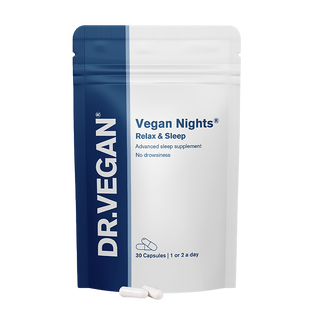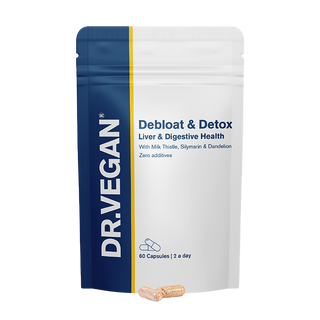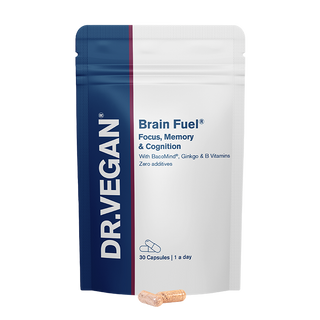Best alternatives to caffeine

Caffeine is in a number of foods, with the highest level typically being in coffee. Caffeine has its uses and its downfalls, and many of us rely on it to get us through the day. But is caffeine good for you? What are the side effects, the benefits of quitting caffeine, and what are the best alternatives? Let us explain.
Benefits of caffeine
Although caffeine has a bad name, it does provide some benefits when consumed in moderation.
Feeling more awake and alert
Caffeine stimulates the brain and nerves and helps many people to stay alert, especially if they have not had enough good quality sleep. Caffeine blocks adenosine – a calming and tiring neurotransmitter in the brain. Caffeine also increases the level of adrenaline in the brain which speeds up the brain function.
What's your diet missing? Create your free Diet Profile.
Mood
The increase in adrenaline in the brain may improve mood. In one study, caffeine has been shown to lower the risk of depression by around 13%.
Brain function
The increase in adrenaline in the brain may improve function. Adrenaline usually increases in states of stress, where the brain needs to work quickly and efficiently to solve or remove an individual from a potentially dangerous situation. Caffeine triggers a mild stress response and results in the increase in brain function. You may enjoy our article 'What supplements to take for brain health' and 'Nootropics: Everything you need to know'.
Metabolism
Some studies have shown caffeine to increase metabolism by up to 11% and may help the body to burn fat by up to 13%.
Exercise performance
The increase in the rate of fat burning can be beneficial for exercise and sports performance as it can delay the time in which the muscles in athletes - and anyone doing exercise - reach exhaustion.
Side effects of caffeine
While it has its benefits, caffeine consumption also comes with some side effects, especially when consumed in large amounts.
Too much caffeine can lead to symptoms including anxiety, nervousness and irritability; depression; acid reflux and heartburn; feeling ‘jittery’ or restless; sweaty palms; rapid speech; insomnia; incessant thinking and lack of concentration and headaches or migraines. More severe reactions include paranoia; phobia expression; obsessive-compulsive disorder; skin rashes and allergies such as hives, eczema, acne and severe itching; increased inflammation, muscular pain and tension in the neck and back.
Restlessness and trouble sleeping
Due to the increase in adrenaline that caffeine triggers, it can increase restlessness and difficulty sleeping. Adrenaline triggers an increase in blood sugar and energy, so if caffeine is not used at the right time then it can lead to problems relaxing and falling asleep. Learn more in our sleep research which found 73% of people have trouble sleeping at least 3 nights a week.
Headaches and migraines
Caffeine can both cause and reduce headaches. Caffeine slightly narrows the blood vessels to your brain which can reduce a headache, but when these blood vessels expand again, it can trigger a headache or migraine.
May increase blood pressure
The increase in adrenaline associated with caffeine consumption, and the narrowing of blood vessels that can occur, is the same as the body's stress response and the associated increase in blood pressure that arises when you are in a stressful situation.
Anxiety and restlessness
Caffeine can exacerbate existing feelings of anxiety and restlessness as it is a central nervous system stimulant. It can affect the balance of neurotransmitters, which can play a role in anxiety levels.
Muscle tremors and twitching
High doses of caffeine can trigger this muscle tremors and twitching, especially noticeable in the hands. This is more likely to occur in people who are sensitive to caffeine. This is because it stimulates the nervous system and enhances neural activity, this increased firing can lead to muscle twitches.
Gastrointestinal problems
Caffeine has a mild laxative effect and increases stomach acid production. This increase can potentially lead to symptoms such as acid reflux, heartburn or stomach discomfort.
Muscular pain
Caffeine is a stimulant that can increase muscle activity and tension. This heightened muscle activity can lead to increased muscle pain and tension.
Skin rashes
Caffeine can be found in some skin problems and absorbed through the skin. This can be a problem and cause skin rashes for sensitive individuals.
Increased urination
Caffeine is a diuretic, which means that it increases urine production. This can lead to dehydration and symptoms, including headaches etc.
Mood swings
Caffeine can contribute to irritability and mood swings. This is because it is a central nervous system stimulant and affects neurotransmitters in the brain. It can increase the release of excitatory neurotransmitters like dopamine and norepinephrine; this can initially enhance mood and give a temporary lift. However, when the caffeine wears off, there can be a subsequent drop in neurotransmitter levels, leading to mood swings.
Benefits of quitting caffeine
While there are some direct benefits of caffeine, even if only short term, many of these are actually benefits of quitting caffeine.
Better sleep
Above we explain how caffeine can make you feel more awake and alert, but quitting caffeine can do just the same thing. Caffeine can interfere with the sleep-wake cycle, causing problems when trying to get to sleep at night. Research shows that people who do not consume caffeine generally sleep better.
Vegan Nights®

Less anxiety
Some people are more sensitive than others to the body's stress response that caffeine triggers, especially when consumed in excess. A chronic stress response, whether from caffeine or life situations in general, can lead to higher levels of anxiety. Stopping caffeine intake reduces the stress response on the body and over time may help to reduce anxiety.
Better hormone balance
Too much caffeine can interfere with the balance of hormones in a woman’s body, particularly the balance of oestrogen. Caffeine intake may also increase some symptoms of the menopause so is one of the foods to avoid during menopause - learn more in our article 'Nutrition for the menopause'.
Lower blood pressure
If you suffer from high blood pressure, consider eliminating caffeine. The adrenaline that is released from caffeine consumption narrows the blood vessels and increases blood pressure. Chronically high blood pressure increases the strain on the heart and the risk of developing cardiovascular diseases.
Better digestion and absorption of nutrients
Some studies show caffeine may reduce your absorption of nutrients, in particular B Vitamins, Iron and Calcium. If your body is already low in these nutrients, whether as a result of your diet or if your body doesn't absorb them well, cutting out caffeine as well as consuming a healthy diet is a good option. Discover the nutrients your diet provides in our free online Diet Profile.
Debloat & Detox

Sources of caffeine to look out for
Remember that even decaffeinated tea and coffee may contain trace amounts of caffeine in it, so if you are extremely sensitive, you may need to avoid them.
- Chocolate: Dark chocolate contains some caffeine
- Ice cream and frozen yoghurts: Some flavours contain caffeine
- Some medications and supplements may contain caffeine
- Energy water or enhanced water: Some brands of water have added caffeine to give an energy boost
- Some non-fizzy drinks also have caffeine
- Creams/make-up: Some creams contain caffeine which is absorbed through the skin
Best alternatives to caffeine
B Vitamins
B Vitamins are essential for energy production and brain function. They feed directly into the energy production cycle and are needed for every brain cell. If your diet is low in B Vitamins, adding in a B Vitamin food supplement may help to replace caffeine, as well as being beneficial to overall health and wellbeing.
Of course it's always best to start with your diet, so increase your consumption of foods high in B Vitamins including wholegrains and almost all vegetables, in particular mushrooms and avocados. If you're not on a plant-based diet, meat, eggs and salmon all contain high levels of B Vitamins.
Discover Brain Fuel® | Advanced nootropic formula
Bananas
Bananas are rich in potassium, a nutrient which promotes proper hydration. Proper hydration is essential for alertness and feeling energised. Bananas also provide carbohydrates which provide energy to your body and brain. They also contain L-tryptophan which converts into serotonin, your ‘happy hormone’. Discover 5 foods to improve your mood.
Walnuts, chia seeds and flax seeds
These nuts and seeds contain omega 3 fats which are needed for brain function and feelings of alertness. Walnuts, chia seeds and flax seeds also provide protein which, when eaten with a meal, can steady the release of carbohydrates into the blood, resulting in sustained energy release.
And you can also try...
Taking a cold shower!
Taking a cold shower increases your rate of deep breathing, which in turn increases oxygen saturation in the blood, providing more energy throughout your body. Cold showers also stimulate your metabolism which helps to control daytime energy levels.
Listening to your favourite song
Listening to your favourite music can trigger the release of endorphins – these are feel good chemicals in the brain which excite and energise your body, as well as increasing confidence and mood. The louder the better!
Discover our range of vegan vitamins and supplements.
Want to hear more from our nutritionists? Sign up to our newsletter for free tips and advice:




















